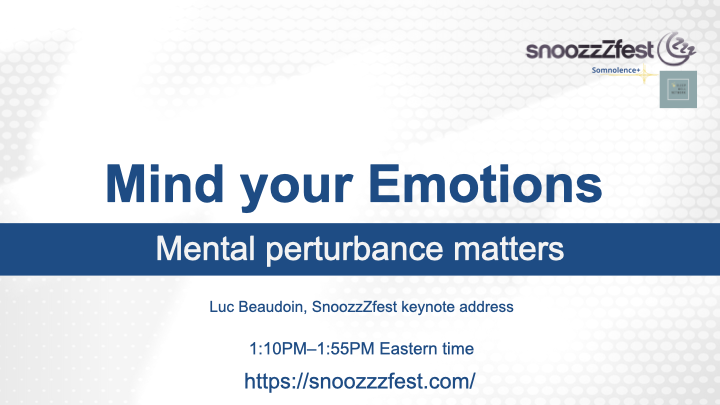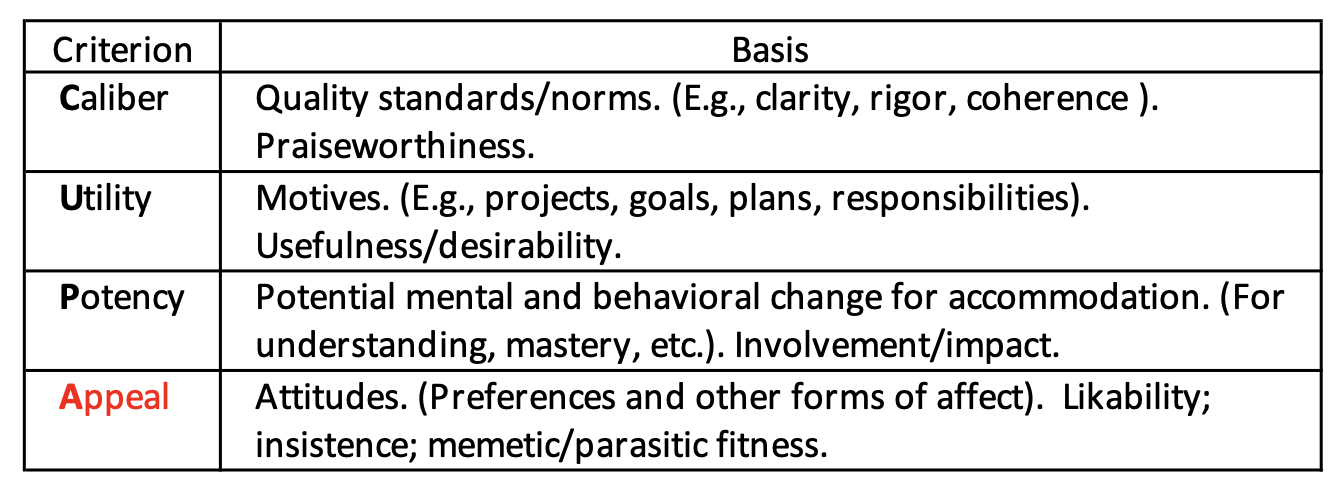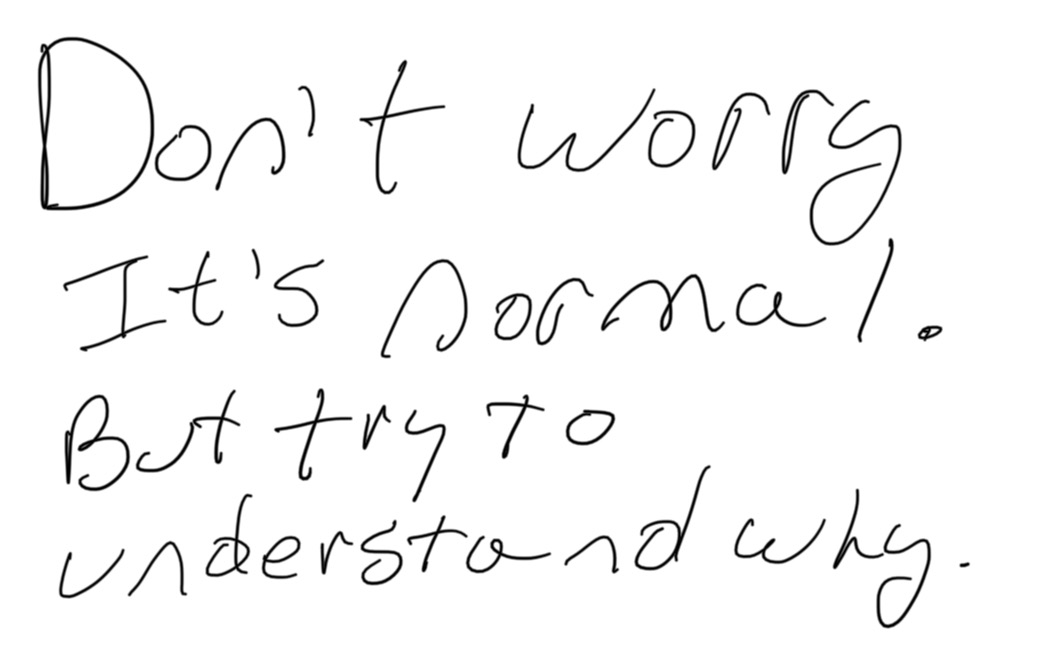I’m an avid Mac user but I don’t tend to blog about the latest Apple news. Nor do I publicly speculate about future Apple products. So, I don’t participate in 99% of what is written about Apple. However, 24 hours into using my new MacBook Pro M1 Max, I’m already missing the Touch Bar (as I expected). And I can no longer resist the temptation of discussing its demise and predicting its reincarnation.
Category: CogZest
Mind Your Emotions! SnoozzZfest 2021 Keynote Address
Tomorrow, I will give the keynote address at SnoozzZfest™: All About Sleep International Virtual Conference (runs October 23-24, 2021). (Join the conference!) The title of my talk is “Mind your Emotions: Mental perturbance matters”.

My talk is @ 1:10PM–1:55PM EASTERN Sunday.
Continue reading Mind Your Emotions! SnoozzZfest 2021 Keynote Address
Je suis (de retour)
Je ne semblais probablement pas être disparu mais …
CUP’A and The Future of Text: On Assessing and Selecting Information
Earlier this week I submitted a brief chapter called “Beyond the CRAAP test and other introductory guides for assessing knowledge resources: The CUP’A framework” for publication in the 2nd edition of the Future of Text book edited by Frode Hegland. Here’s Table 1 of the chapter:

Continue reading CUP’A and The Future of Text: On Assessing and Selecting Information
Layering in the Mind-brain and Why It Matters: An Exchange Between Paul Smolensky and Myself
Guillaume Pourcel emailed me recently saying
I’m quite sure I spotted you in a video at SFU (recognize your voice and your ideas!): https://youtu.be/GGuBz63snLU?t=2733 (45:35). It’s a nice talk on the integration of connectionists and symbolic ideas w/ virtual machines, something I’m quite interested and my PhD advisor did some really nice work on in this area.
Reverse Engineering the Human Mind as a Way to Better Understand Ourselves and Each Other
Last summer, I gave a guest lecture in Dr. Angelica Lim’s course on Affective Computing at the Department of Computer Science of Simon Fraser University. I said I’d publish the presentation on YouTube, so here it finally is:
How Deep Links Can Help You Master a Document
The Problem with Graduating from University
If you’ve read my Cognitive Productivity books, then you know one of my most important hypotheses about knowledge workers: Continue reading The Problem with Graduating from University
Attention! Have you lost it?
Have you ever been unable to put a worry or desire out of your mind? Of course you have — it’s a sign you are not a simple automaton!

Seven Tips and Some Great Apps for Mastering Knowledge: Technology-enhanced learning
Some students and professors are heading “back to school”. With Covid, learning with technology has become more important than ever. So today, Smile published an original article of mine: Technology-Enhanced Learning: 6 Ways to Master New Info. Here, I summarize and extend that article.
https://twitter.com/HookProductvT/status/1299418000622333953
The tips are:
